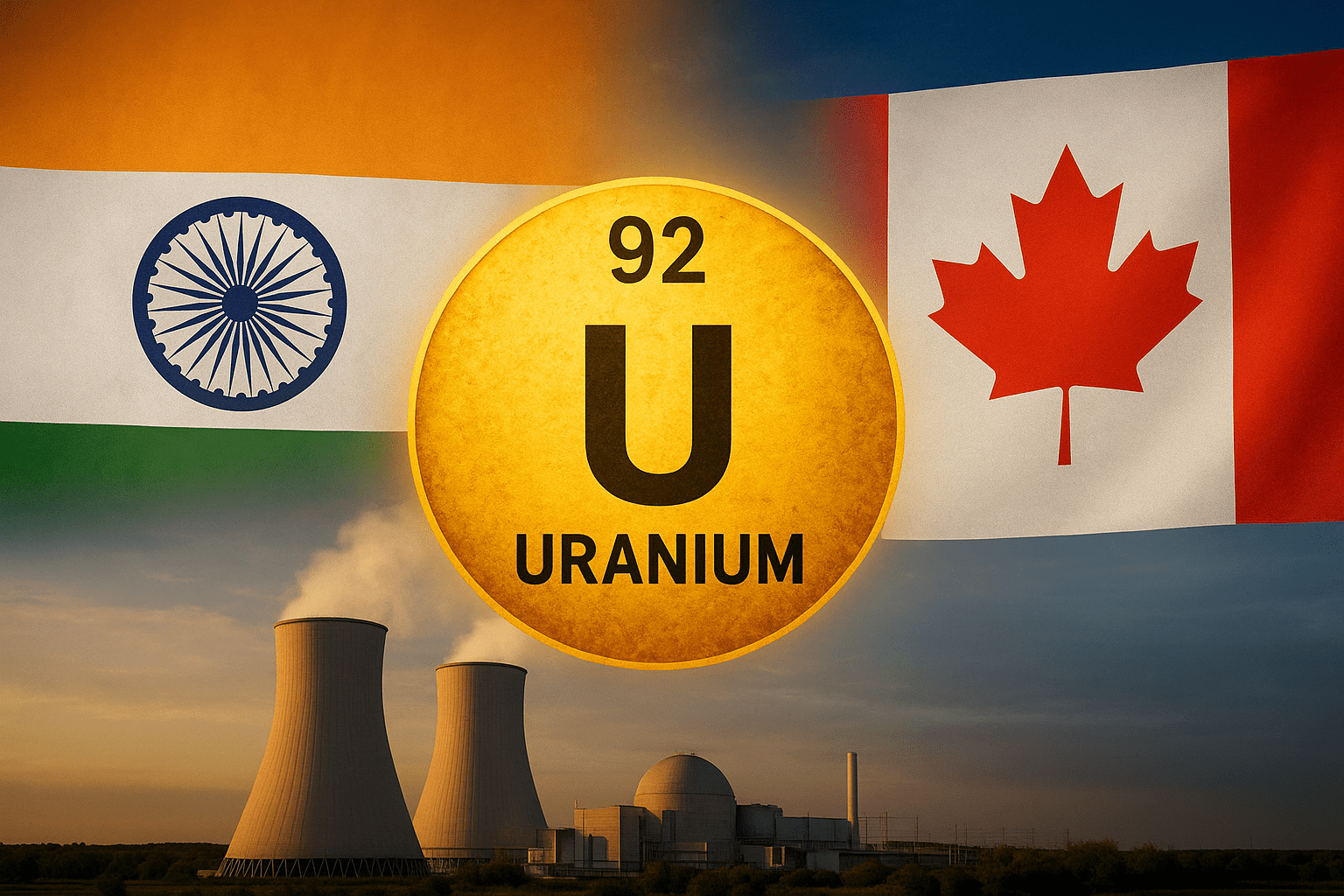Toronto / New Delhi — Canada and India are nearing the conclusion of a landmark $2.8 billion agreement that would see Canadian uranium supplied to fuel India’s nuclear power plants, marking a significant step forward in bilateral civil nuclear cooperation and strategic energy partnership.
According to reports by Canadian media outlet The Globe and Mail, the proposed deal could span a decade and form part of a broader framework for enhanced nuclear collaboration between the two countries. The uranium would be supplied by Cameco Inc., a leading Canadian uranium producer headquartered in Saskatchewan.
The development follows renewed high-level diplomatic engagement between Prime Ministers Narendra Modi and Mark Carney, who met on the sidelines of the G20 Leaders’ Summit in Johannesburg. In an official statement, India’s Ministry of External Affairs confirmed that both leaders reaffirmed their commitment to long-standing civil nuclear cooperation, including the expansion of collaboration through long-term uranium supply arrangements.
Cameco previously maintained a uranium supply agreement with India’s Department of Atomic Energy; however, that contract expired in 2020. The original deal dated back to 2015, following Prime Minister Modi’s official visit to Canada and his meeting with then-Prime Minister Stephen Harper. The export of Canadian uranium to India is governed under the Canada-India Nuclear Co-operation Agreement, which came into force in September 2013.
Beyond uranium supply, officials have indicated that discussions may also extend to broader nuclear collaboration, including India’s expressed interest in small modular reactors (SMRs), a technology increasingly seen as critical for clean and sustainable energy transitions.
The proposed agreement aligns with a broader multilateral framework for technological and energy cooperation. It follows the recent announcement of the Australia-Canada-India Technology and Innovation (ACITI) Partnership, unveiled after a trilateral meeting between Modi, Carney, and Australian Prime Minister Anthony Albanese in Johannesburg. The partnership aims to strengthen collaboration in emerging technologies, diversify global supply chains, promote clean energy solutions, and accelerate the adoption of artificial intelligence across democratic partners.
If finalised, the uranium deal would not only enhance India’s nuclear energy capacity but also reinforce Canada’s role as a strategic supplier in the global clean energy transition, underscoring a renewed phase of trust and cooperation between the two nations.




